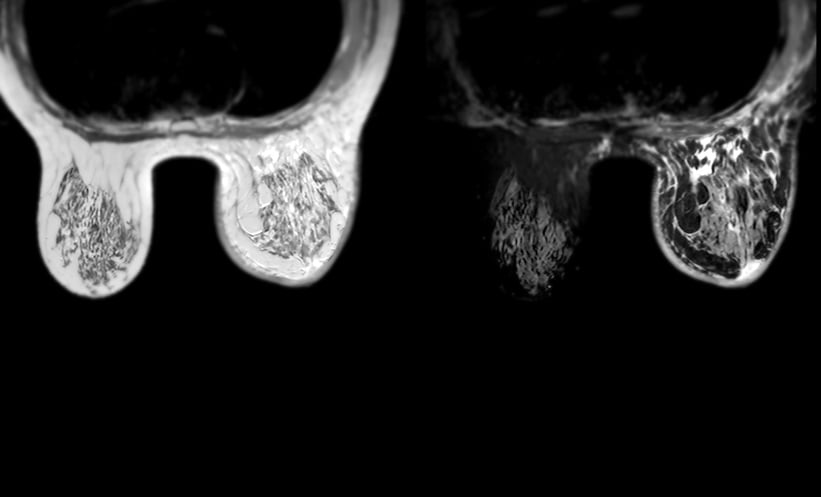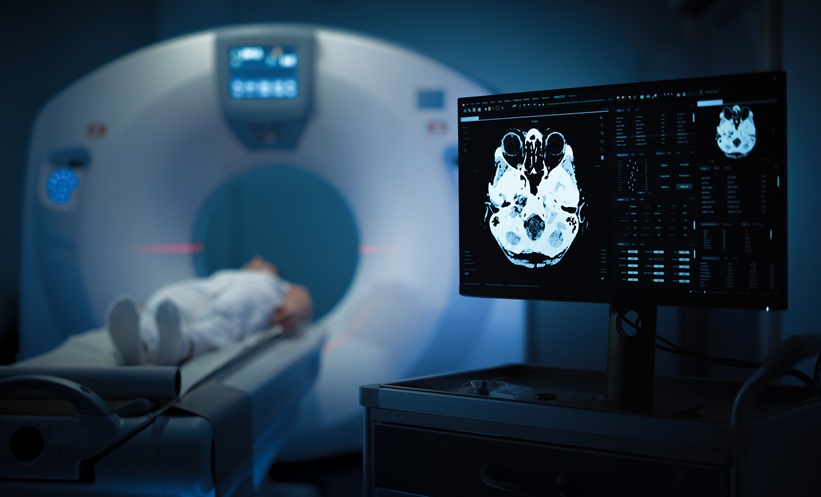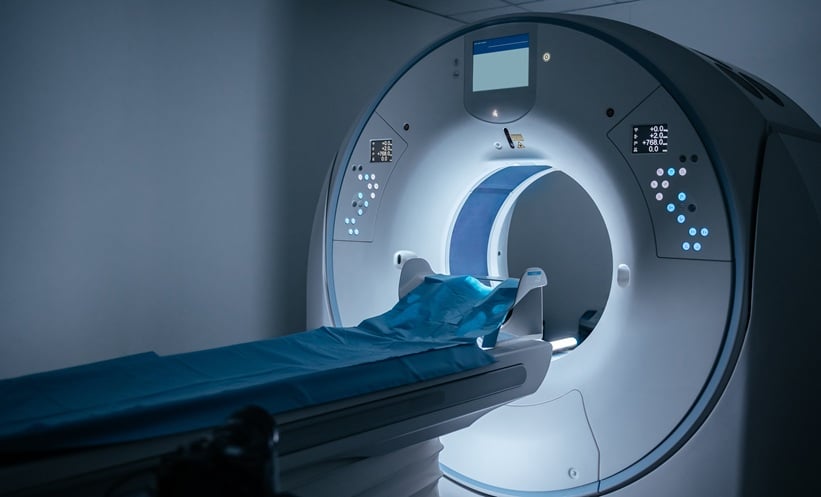ARTIFICIAL intelligence (AI) is increasingly being explored for its potential to enhance clinical workflows, and breast MRI is no exception. Screening breast MRI typically involves lengthy protocols with multiple imaging sequences, placing strain on both patients and imaging services. A recent study has assessed whether AI can be used in real time to adapt breast MRI protocols, potentially shortening scan times without compromising diagnostic performance. Notably, the study found that up to 50% of scans could be abbreviated without missing any additional cancers.
In the retrospective simulation study, researchers analysed 1423 contrast-enhanced breast MRI examinations performed at three regional cancer centres in the UK between January 2013 and January 2019. An in-house AI tool generated a suspicion score based on subtraction maximum intensity projection images. If the score fell below a chosen threshold, the scan was hypothetically ended early, mimicking an abbreviated MRI (AB-MRI) protocol. Examinations were then interpreted using both the AB-MRI and full protocols. Performance metrics were compared for various AI triage thresholds, with the 50th percentile being a key focus.
Among 863 women included in the study (mean age 52 years), 51 were diagnosed with breast cancer within 12 months of screening. For AI-directed scanning that triaged 50% of examinations to an abbreviated protocol, sensitivity was 88.2% (95% CI: 79.4–97.1) compared to 86.3% (95% CI: 76.8–95.7) for the full protocol. Specificity was 80.8% versus 81.4%, and positive predictive value was 23.6% versus 24.7%. The cancer detection rate remained similar at 31.6 versus 30.9 per 1000 examinations, and the interval cancer rate was slightly lower for the AI-triaged scans. Importantly, no cancers were missed that would have been found by extending the scan.
These findings suggest that AI could play a meaningful role in streamlining breast MRI screening, halving scan times for many patients while maintaining clinical safety. However, this was a simulated study and real-world implementation may present challenges, including the need for validation in prospective settings and the integration of AI tools into clinical workflows. Nevertheless, the potential to reduce scanning time without affecting diagnostic accuracy is significant, particularly in overstretched imaging services.
Reference
Eskreis-Winkler S et al. Adaptive Breast MRI Scanning Using AI. Radiology. 2025;315(3):e242924.








